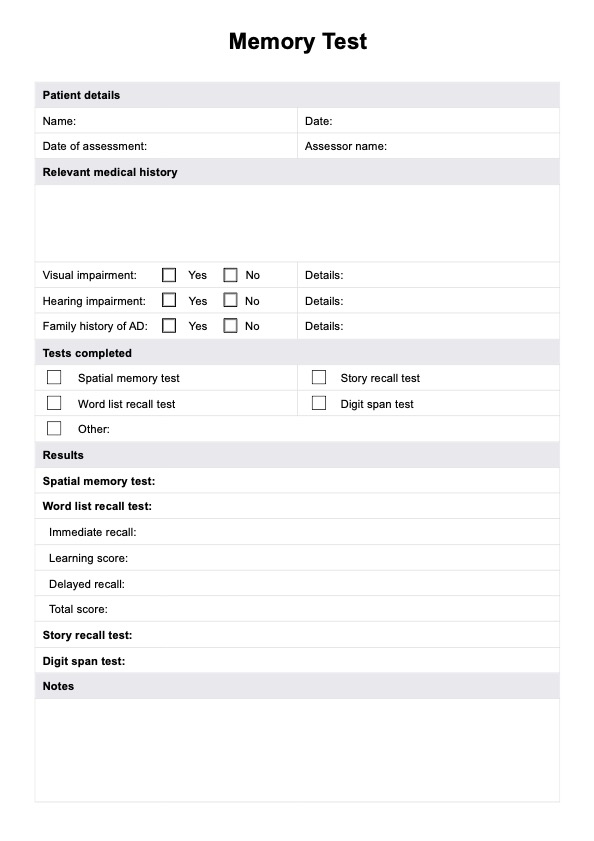This test is intended as a screening tool for detecting cognitive impairment, assessing long-term memory and recall abilities. While it cannot diagnose conditions like dementia, a doctor or therapist may recommend further evaluation if significant memory difficulties are observed.

Memory Test
Looking to assess your patients' memory function? Learn how Carepatron's Memory Test assessment tool can help you accurately evaluate cognitive performance.
Memory Test Template
Commonly asked questions
A family member may feel concerned if a loved one struggles to remember things, especially if memory lapses are frequent. While occasional forgetfulness can result from stress or anxiety, ongoing difficulties may indicate underlying cognitive issues and should be assessed by a healthcare professional.
Yes, this template has been developed for use across the world in mental health and neurological settings. It helps assess how well patients store information and form memories, ensuring their brains are evaluated correctly with respect to their cognitive abilities.
EHR and practice management software
Get started for free
*No credit card required
Free
$0/usd
Unlimited clients
Telehealth
1GB of storage
Client portal text
Automated billing and online payments











